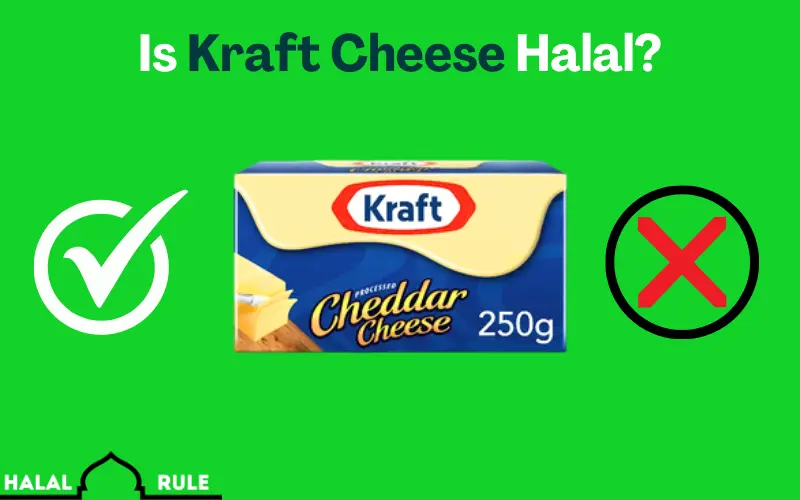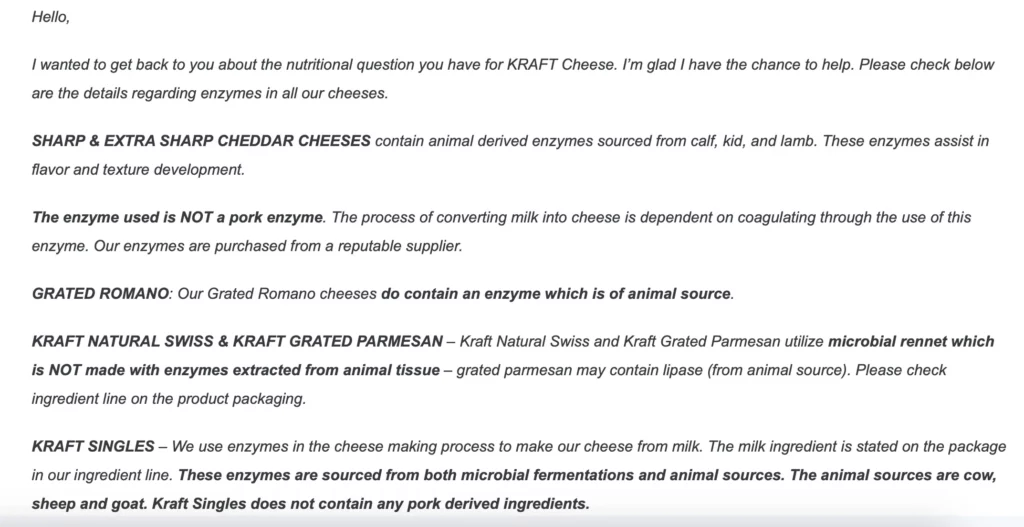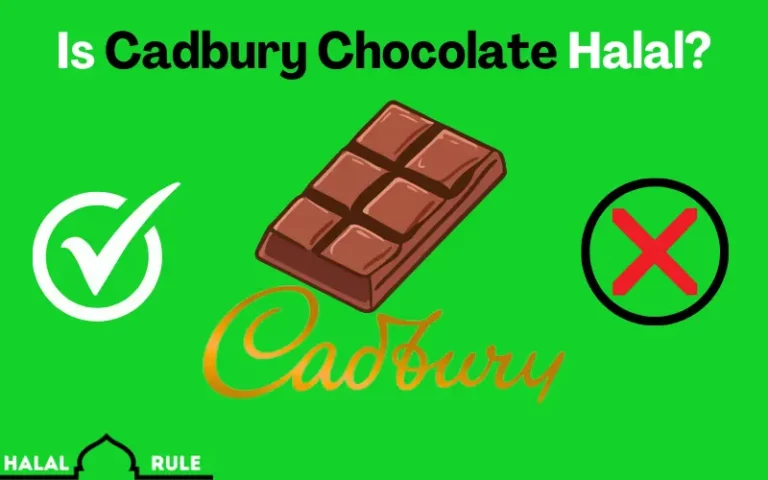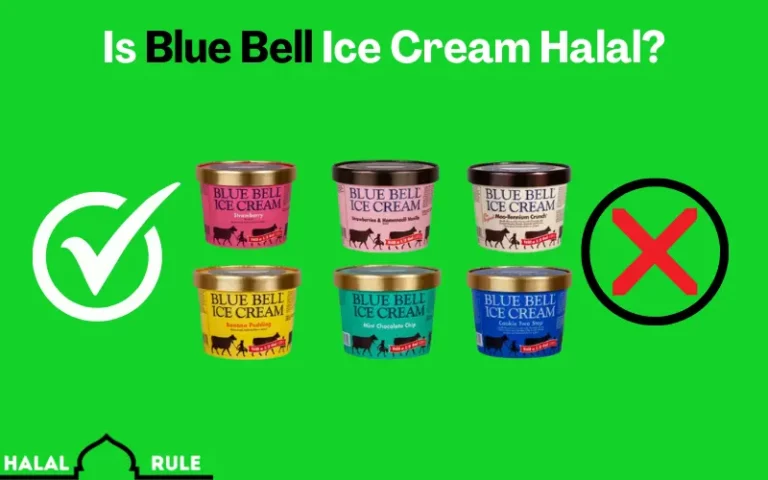Is Kraft Cheese Halal Or Haram?
Are you confused about whether kraft cheese is halal or not? Well, you’re not alone.
With various rumors and misinformation circulating online, it can be difficult to know for sure.
In this blog post, we’ll answer the query is Kraft cheese halal in Islam and clear up any doubts you may have related to this topic.
We’ll consider the certifications, ingredients used, and what the brand itself has to say about halal status. So let’s get started.

Is Kraft Cheese Halal?
No, Kraft cheese is not halal-certified so better to avoid for Muslims. However, considering the ingredient list, some of their products can be halal-friendly.
But if you’re a strict halal follower, then you should avoid consuming Kraft cheese. This is because even though it might be halal-friendly, they don’t have any halal-certified products.
The Kraft cheese is most popular in the USA, Canada, and other Western countries where halal certification is not mandatory but recommended for Muslims.
If a brand has such a huge global presence, it is always a good idea to verify the halal status before consuming its products.
It is easy for them to obtain halal certification if their ingredients are already halal-friendly, but they choose not to do so. This is something you should keep in mind while purchasing Kraft cheese.
And the chances of hidden non-halal ingredients are always there as well. So, it’s better to be safe than sorry.
Otherwise, if we consider the ingredients used, then some Kraft cheese products can be considered halal-friendly. Let’s see in detail.
You might also like to know is Romano cheese halal.
Ingredients In Kraft Cheese
Kraft cheese uses a variety of ingredients, and it varies depending on the type of cheese. Some common ingredients found in their products are:
- Milk
- Salt
- Enzymes
- Cultures
- Whey protein concentrate
While these ingredients might seem halal-friendly, some variations and halal preparation techniques may still be a concern.
For example, in some cheese types, animal rennet is used to curdle the milk. Rennet is an enzyme derived from animals. And most of the time, it’s extracted from calves stomachs.
The usage of such enzymes would make the cheese non-halal. However, Kraft cheese claims to use microbial enzymes for most of its products, which they consider halal.
But the problem is they don’t specify which type of enzyme is used in each product. This lack of transparency makes it difficult to determine if the cheese is truly halal or not.
If you’re confused about Feta cheese halal status, check out is feta cheese halal.
What The Brand Says About Halal Status
As you see above, Kraft cheese is not halal-certified. But considering the ingredients some of their products can be halal-friendly as well.
But what does the brand have to say about its halal status?
Hence, to clear things up, we mail the brand ourselves, and here’s what they have to say:


As you can see, they mention that some of their products are halal-friendly due to using microbial enzymes instead of animal-based ones.
However, also note that they do not claim to be halal-certified, nor do they provide any information about which products are halal-friendly.
This lack of clear communication on their part can be a cause for concern for strict halal followers.
They just say we use microbial enzymes for some of our products with a clear list of products with halal friendly and also animal based enzymes.
Let’s break down halal and non halal friendly products from Kraft cheese according to the brand statement.
Halal-friendly Kraft Cheese
As per the brand’s email response, we can consider the following Kraft cheese products to be halal friendly (But not halal certified):
Note that the halal friendly label is based on the type of enzymes used, not halal certification.
- Kraft Natural Mozzarella cheese
- Kraft Grated Romano Parmesan
- Kraft Natural Swiss cheese
- Kraft Natural Cheddar cheese
- Kraft Philadelphia Cream cheese
- Kraft Singles American cheese slices.
Non-Halal Friendly Kraft Cheese
Based on the brand statement, we can assume that the following Kraft cheese products are not halal-friendly as they contain animal rennet:
- Kraft Sharp & Extra Sharp Cheddar Cheeses
- Natural Swiss Sliced Processed Cheese product (cubed version)
- Pasteurized Process Swiss Sliced Processed Cheese Product (individually wrapped version)
- Halloumi Cheese
- Kraft American Cheese
- Brie Cheese
- Blue Cheese
- Roquefort Cheese
- Gorgonzola Cheese
- Velveeta
- Manchego Cheese.
- Deli Deluxe
Remember, these are the brand statements, but in reality, there might be other hidden non-halal ingredients as well. So always make sure to verify the halal status before consuming any product.
FAQs
Q. Is Kraft mac and cheese halal?
A. No, Kraft mac and cheese is not halal-certified. However, some variations of their mac and cheese may be halal-friendly due to the use of microbial enzymes instead of animal-based ones.
Q. Is Kraft macaroni and cheese halal?
A. No, Kraft macaroni and cheese is not halal-certified. They contain animal rennet, making it non-halal.
Q. Is Kraft mozzarella cheese halal?
A. No, Kraft mozzarella cheese is not halal as it contains animal rennet. For more learn here is mozzarella cheese halal.
Q. Is kraft parmesan cheese halal?
A. No, Kraft parmesan cheese is not halal-certified as it contains animal rennet.
Conclusion
In conclusion, Kraft cheese is not halal-certified and should be avoided by strict halal followers. However, some of their products may be considered halal-friendly due to the use of microbial enzymes instead of animal-based ones.
But keep in mind that the brand doesn’t say that we’re 100% halal. They just mention that some products are halal-friendly, but not certified. And this lack of transparency can be a cause for concern for strict halal followers.
Therefore, it is better to look out for other halal-certified cheese brands or to verify the halal status before consuming any Kraft cheese product.
I hope your search for is Kraft cheese halal or not, ends here. Stay safe and consume only what is certified halal by trusted sources.






